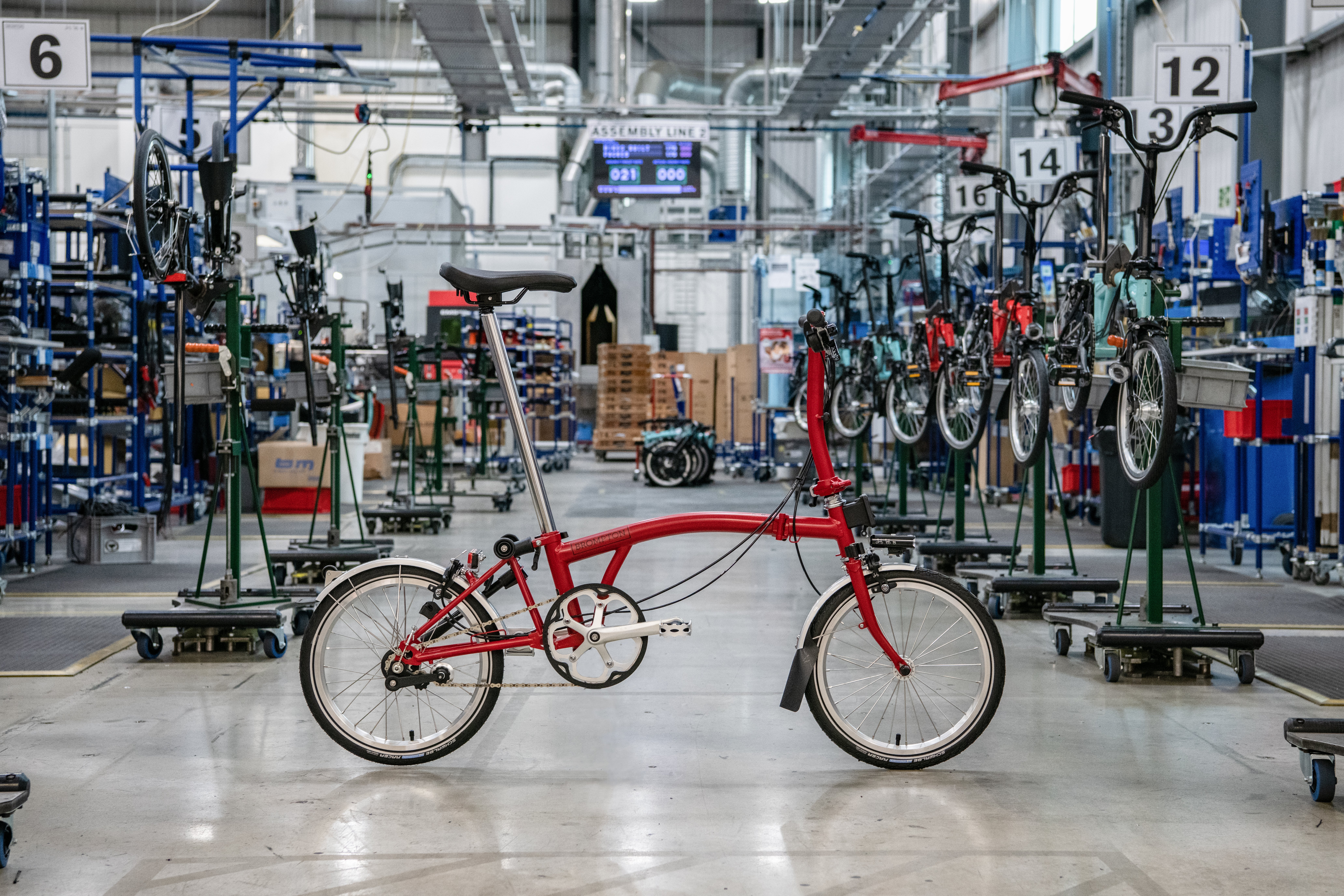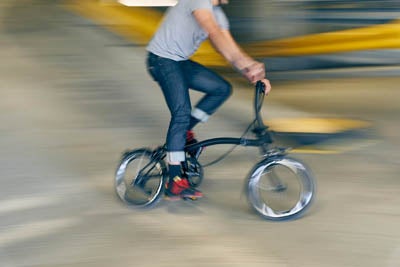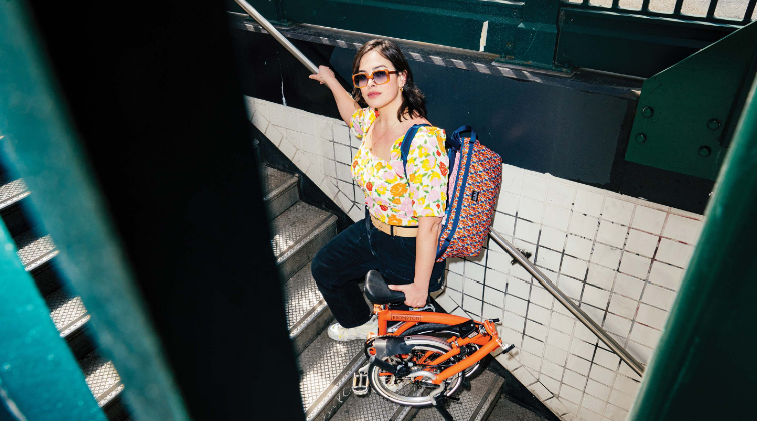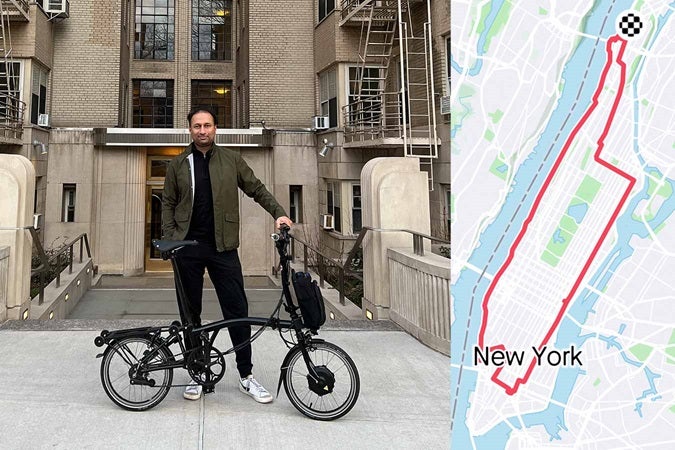At Brompton we want to celebrate the unique identities of all cyclists. We spoke to Tara Seplavy on her experience as coming out as trans and how the cycling community welcomed her with open arms.
"You build me, you break me down again, and I take it”…
Jim Suptic’s teenage screams from The Get Up Kids’ song ‘Woodson’ echo in my head; tied to memories and emotions. Song lyrics often do. These lyrics remind me of how the bicycle built me up, tore me down and broke me, but then helped me build myself up again.
For nearly two decades, I developed and marketed bicycle products and bicycle racing itself, becoming deeply entrenched in the sport of bike racing throughout my career. I helped organize and run top level teams and led product development of bikes that carried athletes to the World Championship titles. While doing so, I began to construct and broadcast a fake image of myself and of my life. By living almost exclusively for bikes, I ignored my own self and my own needs, so that I could retain the acceptance of the bicycle racing community.
Similar to almost every professional sport, in the upper echelons of the bicycle racing community there is a pervasive expectation of conformity and pressure to fit in. In a sport dominated by straight cis men, I deathly feared rejection from this community if I were to live openly as a queer trans woman.
""In a sport dominated by straight cis men, I deathly feared rejection from this community if I were to live openly as a queer trans woman.""
At the same time, bicycles were everything to me. I had dedicated two thirds of my life to them and seemingly every facet of my life was dedicated to them. They became central to my social interactions, fostered friendships, became my job, and a singular obsession which glued my life together. My career whisked me away to races, events, and factories in all corners of the globe. Bikes were all I lived for.
Truth be told, a bicycle is not something which the vast majority of people put all that much thought into. It is a tool, a device for transportation, a source of recreation, or perhaps exercise. For some it becomes an outlet for sport and performance. For others, they might enjoy nerding out on the tech bits, or diving headlong into the culture that can surround many aspects of bicycle life. For me, it was all of the above. For a lot of us, the bicycle becomes almost an extension of our being.
In reality I used bicycles as an escape from life. Mostly as an attempt to ride away from anxiety, depression, and dysphoria; some of the only other constants in my life besides bikes. Really it was more trying to ‘race’ away from these topics than just ‘riding’ from them. I kept up a frenetic pace of life to stay ahead of them and beat them to the finish line; whose whereabouts I did not know. But much like bike racing, life often ends up in a spectacular crash.
Unexpectedly, the bicycle helped me understand and accept unconditional acceptance. When I came out as trans, women’s cycling groups quickly offered me an abundance of this acceptance.
""When I came out as trans, women’s cycling groups quickly offered me an abundance of this acceptance.""
Unconditional acceptance is not a concept I had ever really embraced in my life; particularly as it pertains to my own being, my mind, or my body. The women’s cycling community accepted me in full and shielded me, sometimes very publicly, from attacks by people with a hatred of transgender people. Their acceptance was not conditioned on how fast I could ride a bike or what free product I could give away; and that surprised me. It was a side of bikes I had never experienced.
This unconditional acceptance pulled me back into the bicycle world when I fully expected to be rejected by it. I suddenly wanted to race again, to go on group rides, and to participate in ways I had not previously even considered possible for folks like me. I was able to truly feel bikes were a welcoming and safe place.
Women’s cycling continues to give me hope that the future of bicycling is bright for me and for others. Inside this community are groups and individuals who are forces for change in the bicycle world. Some might label us organizers or activists, but most are women and non-binary folks who want nothing more than to share the activity and sport with everyone. We want to share that acceptance we have seen in our community and expand upon it.
What I have experienced in the women’s cycling community are people who are passionate and dedicated to growing cycling for all riders. There is a true want from the community to grow participation beyond its current boundaries. Seeing this desire to grow in a meaningful and intersectional way makes me want to give back more of myself, to reinvest into my love of bikes and into the sport.”
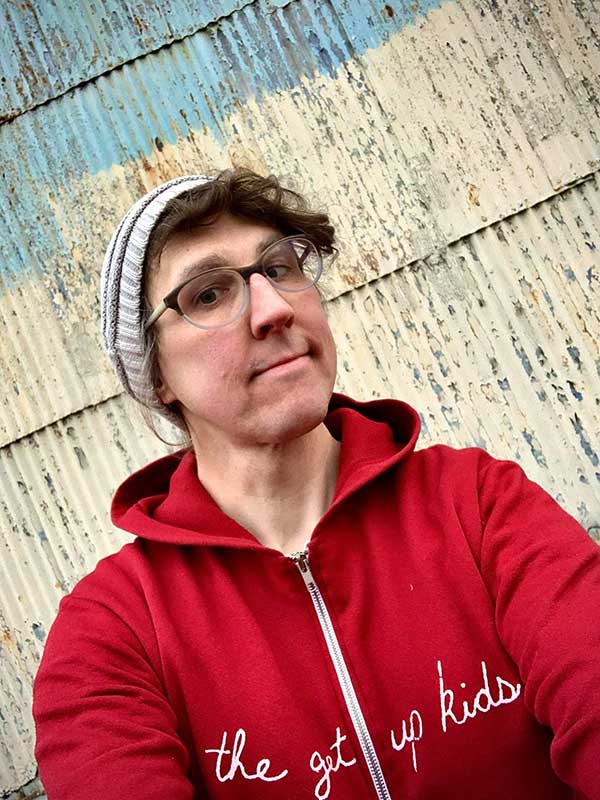
Tara Seplavy is an outspoken advocate for diversity, equity, and inclusion in the sport and business of cycling. She has been riding and racing bikes of all sorts for over 25-years. Currently, Tara works as a freelance product and marketing specialist and bicycle mechanic in Brooklyn, New York.
During her career in the bicycle industry, Tara has led product development for multiple bike brands, formed World Championship winning teams, and sat on the Board for USA Cycling. Tara has been featured by Outsports and a guest on podcasts and panel discussions. Follow her on social media at @t_seplavy.
